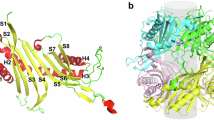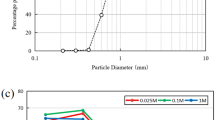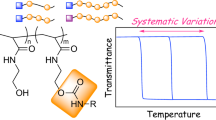Abstract
IN the course of work on the constitution of certain wood starches and other polysaccharides containing uronic acid residues, we have found it necessary to investigate more closely the accuracy of the analytical methods used in the estimation of the uronic acid content. The usual procedure consists in heating the substance with aqueous hydrochloric acid and measuring the amount of carbon dioxide liberated.
This is a preview of subscription content, access via your institution
Access options
Subscribe to this journal
Receive 51 print issues and online access
$199.00 per year
only $3.90 per issue
Buy this article
- Purchase on SpringerLink
- Instant access to full article PDF
Prices may be subject to local taxes which are calculated during checkout
Similar content being viewed by others
References
Colin, H., and Lemoyne, S., Bull. Soc. Chim. biol., 20, 343 (1938).
Campbell, W. G., Biochem. J., 29, 1068 (1935).
Dickson, A. D., Otterson, H., and Link, K. P., J. Amer. Chem. Soc., 52, 775 (1930).
Author information
Authors and Affiliations
Rights and permissions
About this article
Cite this article
CAMPBELL, W., HIRST, E. & YOUNG, G. Estimation of Uronic Anhydride Residues in Polysaccharides. Nature 142, 912–913 (1938). https://doi.org/10.1038/142912b0
Issue date:
DOI: https://doi.org/10.1038/142912b0
This article is cited by
-
Determination of Uronic Groups in Polysaccharides
Nature (1939)



